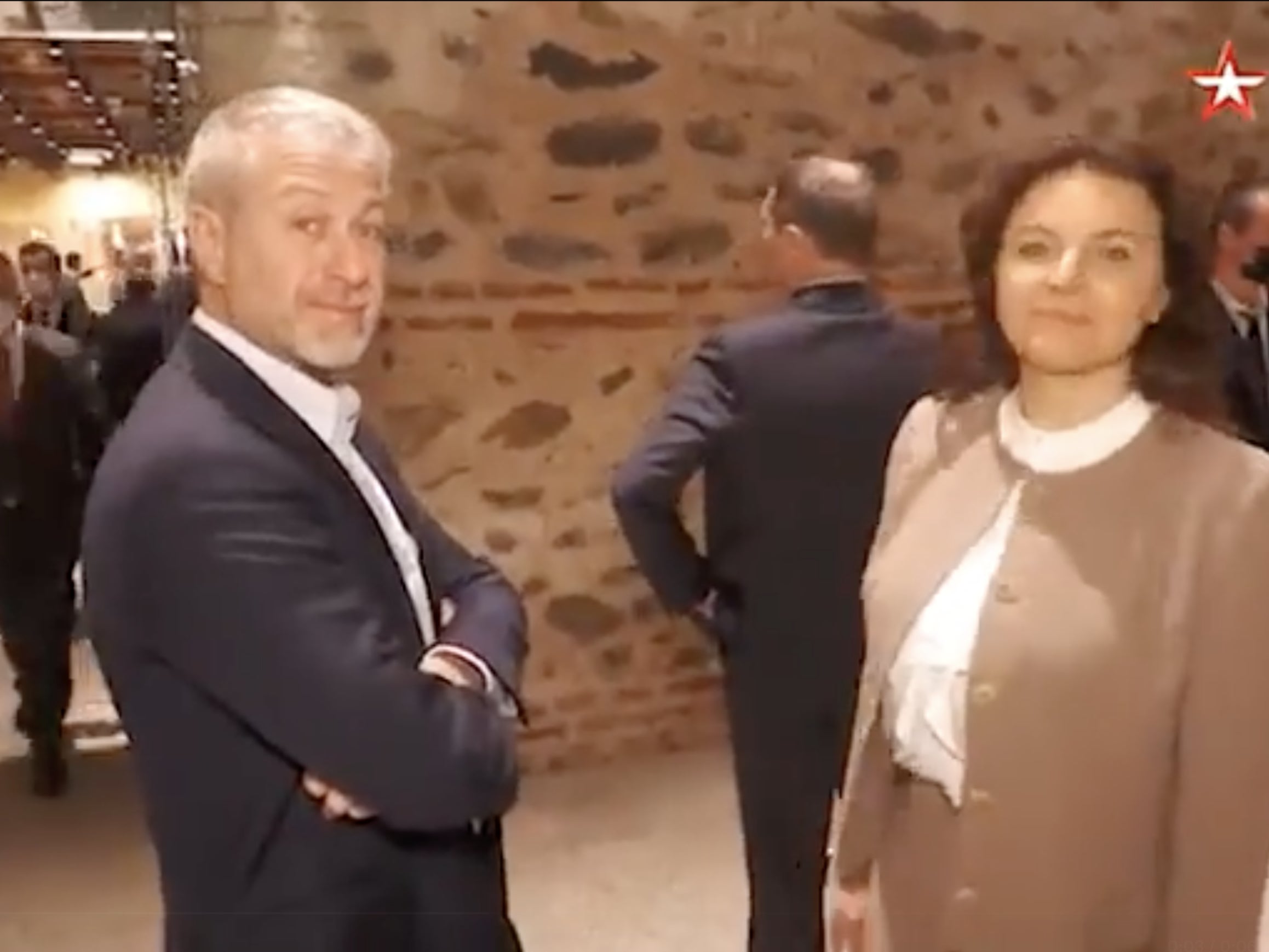Kremlin dismisses Abramovich poisoning claims as part of ‘information war’
Kyiv and Washington also reject suggestion Russian billionaire and Ukrainian delegates were targeted
The Kremlin has rejected the allegation Russian oligarch Roman Abramovich and several Ukrainians were poisoned in Kyiv during recent peace talks, saying the claim was part of the “information war”.
The day after the suspected poisoning was first reported by the Wall Street Journal and the investigative website Bellingcat, Kremlin spokesperson Dmitry Peskov dismissed it as untrue.
Moscow’s denial follows the suggestion that the Russian billionaire and Ukraine peace negotiators showed symptoms consistent with poisoning, including red eyes and constant peeling skin on their hands and faces after attending talks in the Ukrainian capital in early March.
It is understood that Mr Abramovich also suffered temporary blindness for several hours, before making a quick recovery.
Like their Russian counterparts, senior Ukrainian officials have said the rumours have no basis in fact. Ihor Zhovkva, the deputy head of the president Volodymyr Zelensky’s office, told the BBC a member of the Ukrainian delegation had said “the story was false”.
Ukrainian negotiator Mykhailo Podolyak and Rustem Umerov, another member of the negotiating team, took the same position, with the latter urging people not to trust “unverified information”.
On Monday, the US also dismissed the claim, saying Mr Abramovich and the others were not poisoned. “The intelligence highly suggests this was environmental,” an unnamed official told Reuters.
However, Ukraine’s foreign minister Dmytro Kuleba warned delegates from his country to be vigilant at Tuesday’s peace talks in Turkey.

“I advise anyone going through negotiations with the Russian Federation not to eat or drink anything, and preferably avoid touching any surface,” he told the Ykpaiha 24 news channel.
The formal peace talks are the first to be held in several weeks.
“Intensive consultations are underway right now on some important issues, the most important of which is agreement on international security guarantees for Ukraine, because with this agreement we will be able to end the war as Ukraine needs,” one of Mr Zelensky’s aides said.
“The second issue is a ceasefire to solve all the humanitarian problems that have accumulated,” they added.
The Kremlin confirmed that Mr Abramovich was attending Tuesday’s discussions between Russia and Ukraine in an unofficial capacity.
Join our commenting forum
Join thought-provoking conversations, follow other Independent readers and see their replies
Comments
Bookmark popover
Removed from bookmarks